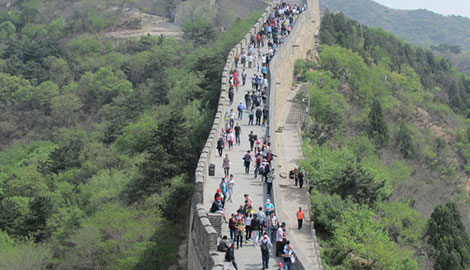×
The Standard e-Paper
Kenya’s Boldest Voice
 |
| Tourist at the great wall of China PHOTO: COURTESY |
China, Kenya: Everyday, thousands of tourists, mainly locals, brace themselves to climb a section of the Great Wall of China.
It is a spectacle to behold as everybody; the old, the young and even the physically challenged, queue to pay homage to one of the world’s greatest wonders.